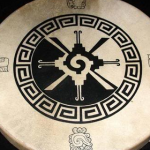by Jim Rohn: The following are what I believe to be the basics of good character. Miss one of these, and you’ll find a weak link in your character—one that might be your leadership’s undoing…
1. Integrity
Integrity is a good catchword that is similar to character but provides us with a different way of looking at the ideas of character. The root of integrity means “whole” or “undivided,” and that’s a terrific way to help us understand what integrity is—an undivided life. For example, you don’t act one way in one situation and another in a different situation. There is integrity and wholeness to your life. Living this way will build trust in your followers. Another use of the word integrity that provides insight for us is when the word is used in regard to a physical structure. A wall or a building that is strong and has no cracks is said to have integrity. The same could be said for great leaders.
2. Honesty
It is regularly said that honesty is the best policy, but I would add that honesty is the only policy for great leaders. Think about it. Why do people hedge the truth? Usually for a few basic reasons: They are either afraid of the ramifications or they are trying to hide something. Either way, a lack of honesty results in the fact that you destroy the trust of those who follow you. Even if you tell them the truth but they know you have lied to others, it will destroy the trust you had with them. They find themselves thinking, “If he will lie to them, will he lie to me?”
I’ve never understood what people hope to accomplish by being dishonest. Eventually people come to know that you’re not honest in your dealings, and that is what you become known for. Your reputation is what your leadership is based on, though. When we’re honest and live transparently before our followers, they’re able to see us for who we are and make solid decisions to follow.
3. Loyalty
People of good character are loyal people. They have a “stick-to-it” attitude when it comes to others. Anybody who knows human nature knows that people fail. It’s just a matter of time, no matter how talented someone is. A person of good character stays with their friends even in the downtimes. Anyone can be friends with others when times are good. People of good character stay with their friends when they need them most. How this translates into making you a good leader is this: People want to follow a leader who will stretch them beyond where they are now, but who’ll also allow them to try—and to fail. When we are loyal to our followers, they’ll be loyal to us and make every effort to succeed on our behalf and on behalf of the organization. There are few things that strengthen the leader-follower bond more than when a leader shows loyalty to a follower in need.
4. Self-Sacrifice
Lee Iacocca became a legend when he said he’d bring Chrysler back from the brink of bankruptcy and would take only a dollar a year in pay. This was a classic example of a leader sacrificing for the followers. It also showed his understanding of and empathizing with the average line worker. As a result, the workers of Chrysler rewarded him with an incredible following as they built Chrysler into one of the world’s leading car companies.
What is it about self-sacrifice that breeds followers? Followers don’t mind putting in the hard work. They don’t even mind a leader making more money or reaping benefits from their work. What followers do mind, though, is when the leader is using them for personal gain. People of good character don’t use other people, period. So when a leader shows sacrifice of personal gain, it says to the followers that they are willing to come alongside of them—and followers reward that almost universally. A person of good character shows that they can give up personal gain for the good of the whole.
5. Accountability
People of good character don’t mind accountability. In fact, they welcome it. This is the act of allowing others to have a say in your life, to speak to you straight about your life and conduct. The brutal truth is that we have blind spots and need other people to be in close to us so we can advance down the road of success. The need for accountability doesn’t prove lack of character. Rather, it proves the presence of character. G.K. Chesterton said, “Original sin is the only philosophy empirically validated by 3,500 years of human history.” The person of good character knows this and invites others to speak into their life.
Followers grow tired of leaders who will have nothing to do with accountability. They don’t mind leaders who make mistakes, but they do mind leaders who don’t take responsibility for their mistakes by being accountable. When we allow ourselves to be held accountable, our followers know that we are serious about keeping our own house in order, and thus will do a good job in leading the rest of the organization.
6. Self-Control
The ability to make decisions—good decisions—about what we will and will not do with our actions is at the core of what we become in regard to our character. There will be plenty of options to participate in things that are not moral. Everybody has temptations, but a person of good character knows to exercise self-control—literal control over their choices. When people don’t exercise self-control, they sabotage their ability to lead. People lose respect for them and will follow less, if at all. Self-control is the ability to choose to do the things we should, and to refrain from doing the things we shouldn’t. When we exhibit self-control, we again build trust in our followers. They respect us and want to follow us.










































